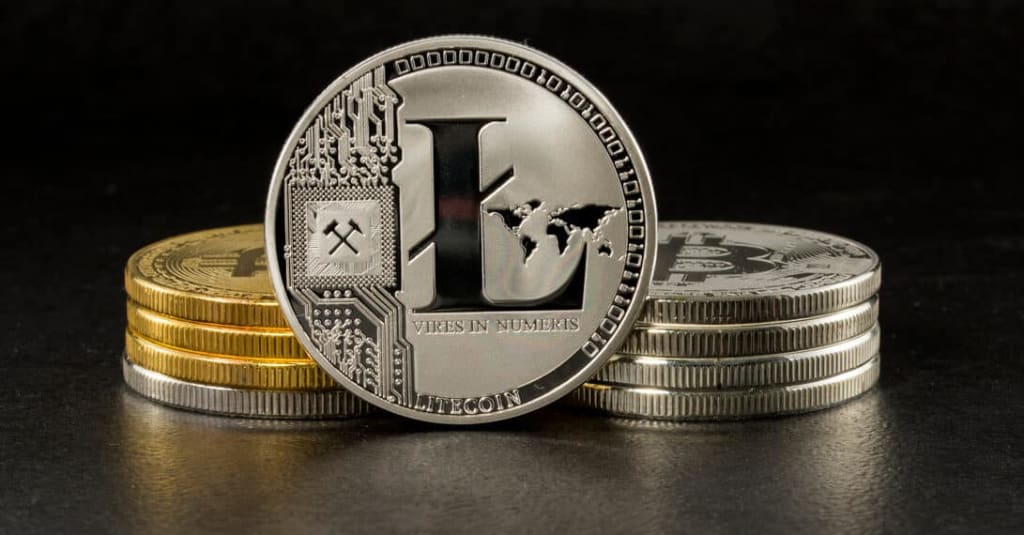
What Is Litecoin (LTC)?
Litecoin (LTC) is a cryptocurrency that was designed to provide fast, secure and low-cost payments by leveraging the unique properties of blockchain technology.
To learn more about this project, check out our deep dive of Litecoin.
The cryptocurrency was created based on the Bitcoin (BTC) protocol, but it differs in terms of the hashing algorithm used, hard cap, block transaction times and a few other factors. Litecoin has a block time of just 2.5 minutes and extremely low transaction fees, making it suitable for micro-transactions and point-of-sale payments.
Litecoin was released via an open-source client on GitHub on Oct. 7, 2011, and the Litecoin Network went live five days later on Oct. 13, 2011. Since then, it has exploded in both usage and acceptance among merchants and has counted among the top ten cryptocurrencies by market capitalization for most of its existence.
The cryptocurrency was created by Charlie Lee, a former Google employee, who intended Litecoin to be a "lite version of Bitcoin," in that it features many of the same properties as Bitcoin—albeit lighter in weight.
Who Are the Founders of Litecoin?
As we previously touched on, Litecoin was founded by Charlie Lee, an early cryptocurrency adopter and a name held in high regard in the cryptocurrency industry.
Charlie Lee, also known as “Chocobo,” is an early Bitcoin miner and computer scientist, who was a former software engineer for Google. In addition, Charlie Lee held the role of director of engineering at Coinbase between 2015 and 2017 before moving on to other ventures.
Today, Charlie Lee is an outspoken advocate of cryptocurrencies and is the managing director of the Litecoin Foundation—a non-profit organization that works alongside the Litecoin Core Development team to help advance Litecoin.
Besides Lee, the Litecoin Foundation also includes three other individuals on the board of directors: Xinxi Wang, Alan Austin and Zing Yang — all of which are accomplished in their own right.
What Makes Litecoin Unique?
Behind Bitcoin, Litecoin is the second most popular pure cryptocurrency. This success can be largely attributed to its simplicity and clear utility benefits.
As of January 2021, Litecoin is one of the most widely accepted cryptocurrencies, and more than 2,000 merchants and stores now accept LTC across the globe.
Its main benefit comes from its speed and cost-effectiveness. Litecoin transactions are typically confirmed in just minutes, and transaction fees are nearly negligible. This makes it an attractive alternative to Bitcoin in developing countries, where transaction fees may be the deciding factor on which cryptocurrency to support.
In late 2020, Litecoin also saw the release of the MimbleWimble (MW) testnet, which is used to test Mimblewimble-based confidential transactions on Litecoin. Once this feature is available on the mainnet, Litecoin users will also benefit from greatly enhanced privacy and fungibility.
Litecoin Mimblewimble Upgrade
Litecoin Foundation announced the long-awaited Mimblewimble Extension Block (MWEB) upgrade as part of the Litecoin Core 0.21.2 release candidate on Jan. 31, 2022. MWEB is “set to be the largest upgrade to the Litecoin network ever, promising to provide fungibility for all, while improving Litecoin's scalability.” MWEB will be an opt-in feature, allowing Litecoin to be the “most fungible, cash-like, cryptocurrency in the space.” The security and privacy enhancing Taproot upgrade will also be part of the core release.
Some Exchanges Delist LTC After MimbleWimble Upgrade
MimbleWimble is an upgrade enabling users to achieve much-needed privacy while transacting on the network. The MimbleWimble upgrade was first proposed in November 2019 through a Litecoin Improvement Proposal. At the time, the Litecoin developers aimed to further focus on improving anonymity between senders and receivers.
Following the MimbleWimble upgrade at Litecoin block 2,257,920, users could opt for moe transaction privacy and explore other benefits, including blocks containing less needless transaction data. More specifically, long transactions are broken down into a single transfer by recording one input-output pair.
The MimbleWimble Extension Blocks (MWEB) upgrade was successfully activated on May 19, 2022. However, the upgrade puts Litecoin in the crosshairs of regulators who do not take kindly to privacy-capable cryptocurrencies.
Some effects of the upgrade became rather apparent when several South Korean exchanges started delisting Litecoin from their platforms shortly after the MWEB upgrade went into effect. Upbit, Bithumb, Coinone, Korbit and Gopax have delisted LTC over the MimbleWimble upgrade, due to how it makes it impossible for these companies to adhere to the Act on the Reporting and Use of Specific Financial Transaction Information. Per South Korean regulation, crypto exchanges need to mitigate money laundering and illicit activities at all costs. That means removing any currencies that provide users with additional privacy or anonymity.
About the Creator
Financial Independents
The only way to do great work is to love what you do. If you haven’t found it yet, keep looking. Don’t settle. As with all matters of the heart, you’ll know when you find it.






Comments
There are no comments for this story
Be the first to respond and start the conversation.